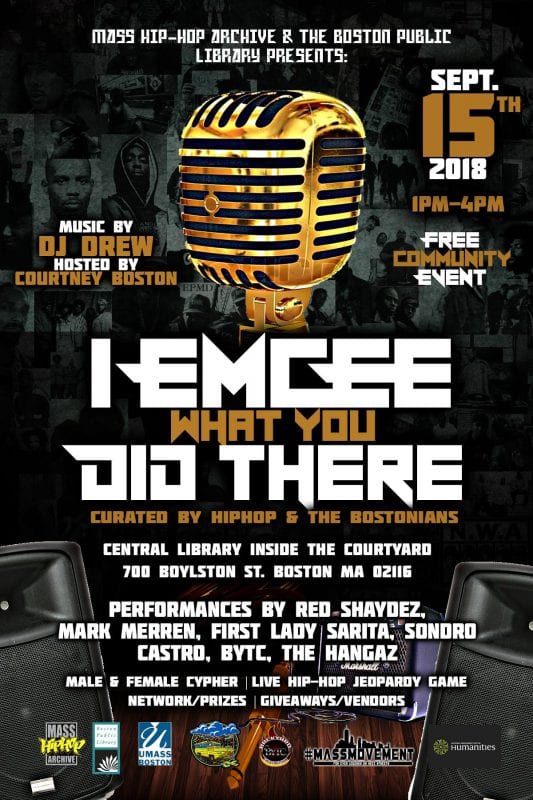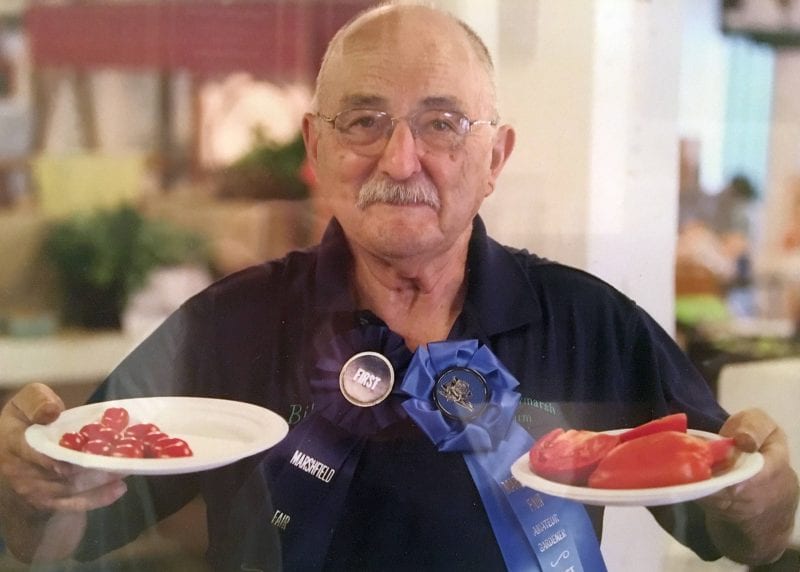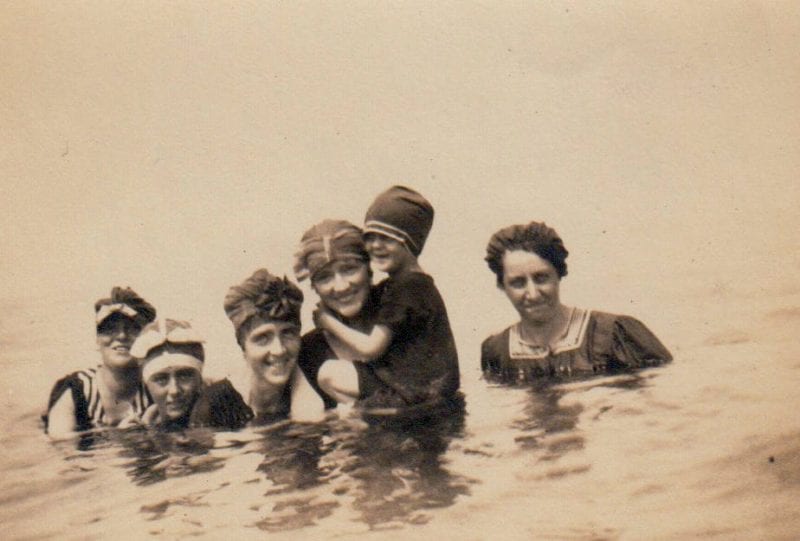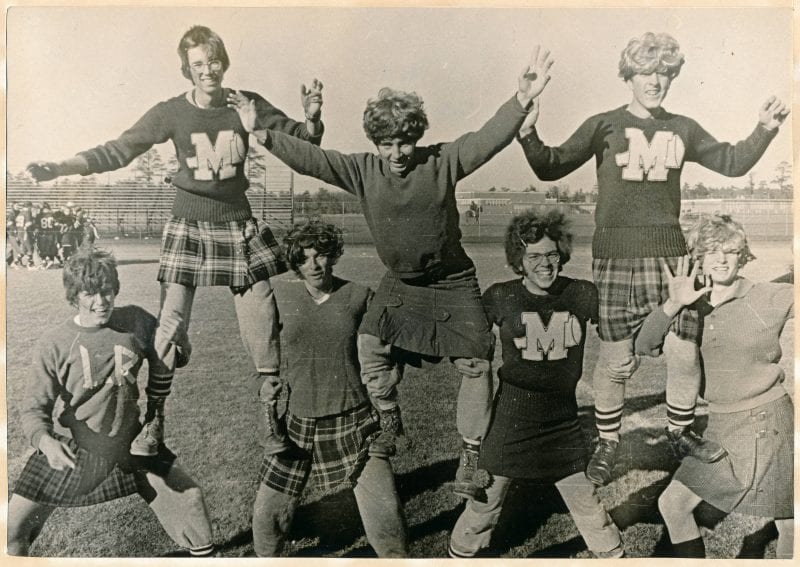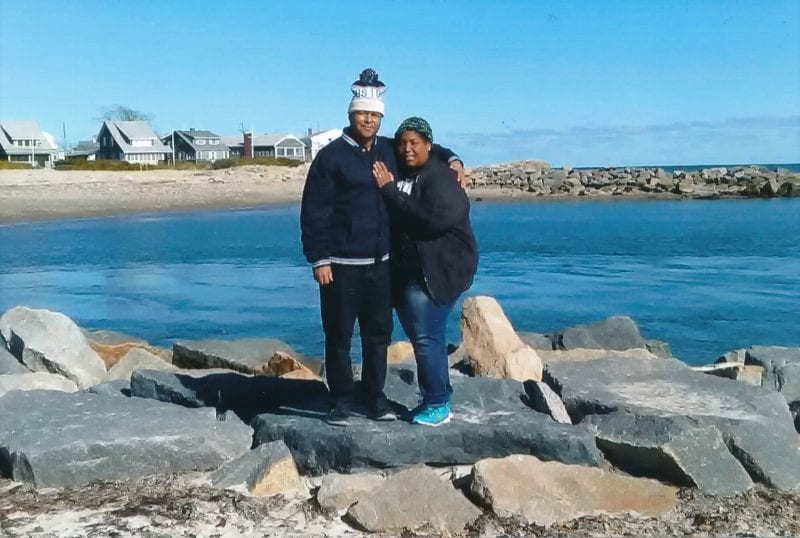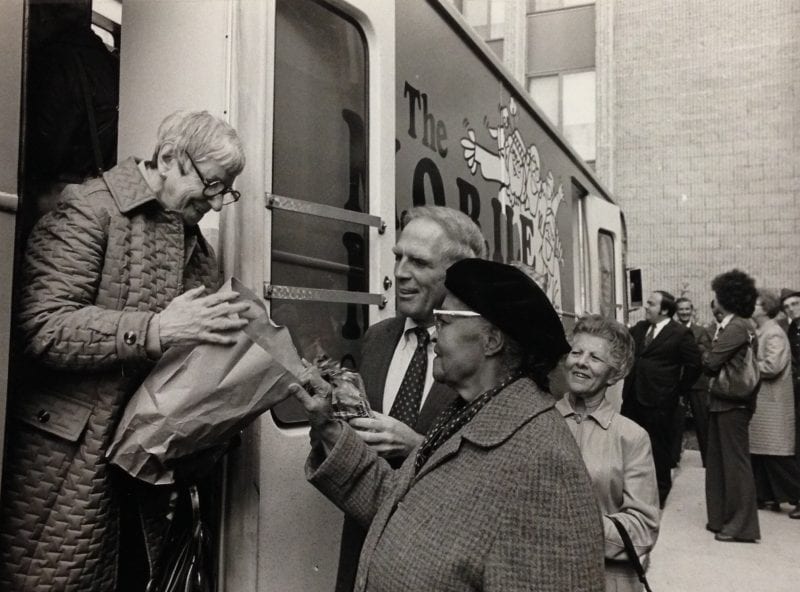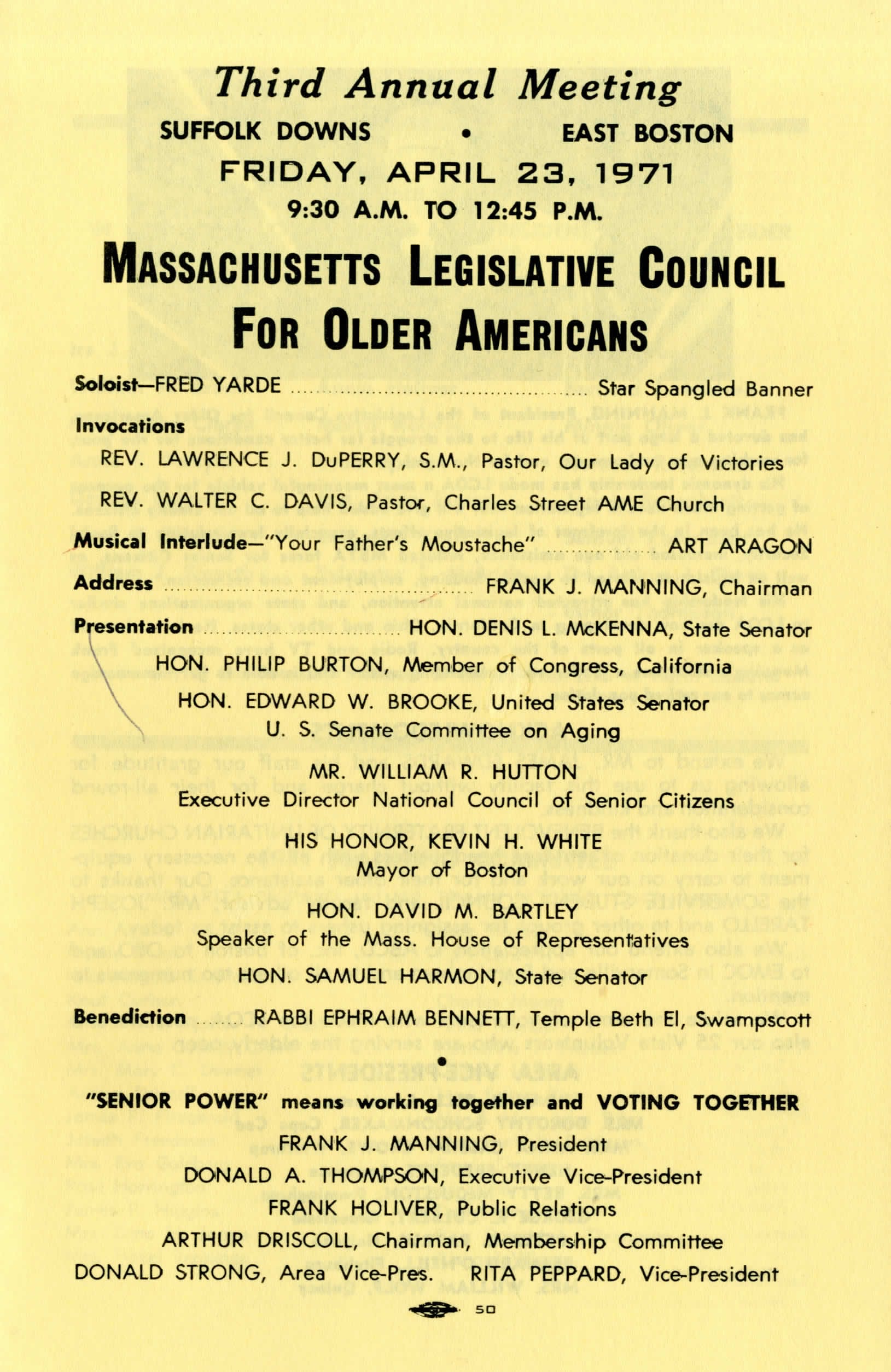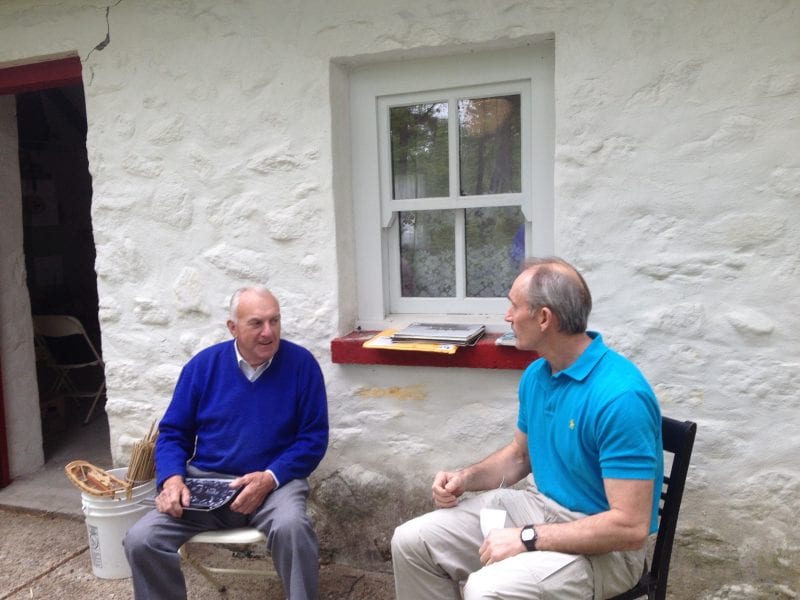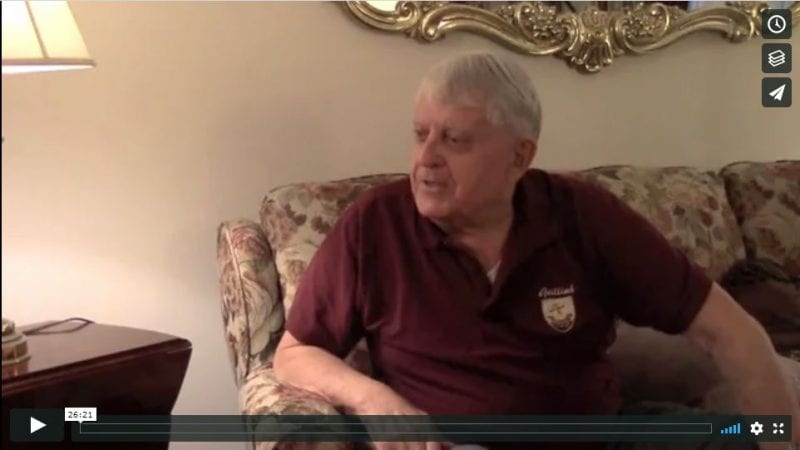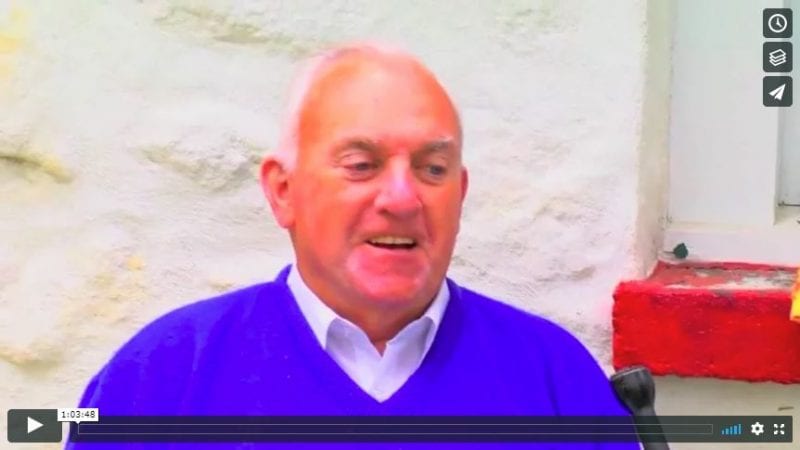The photographs, stories, and videos gathered at the Amesbury Mass. Memories Road Show are now available online for research.
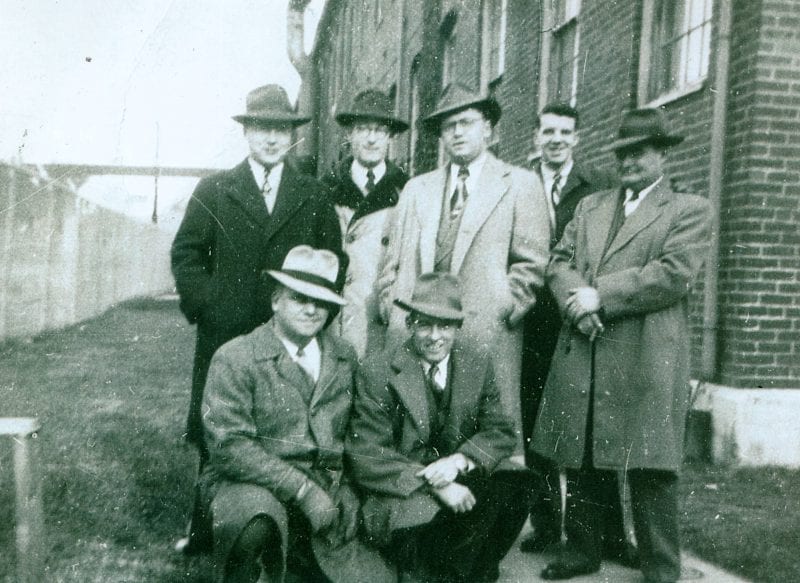
Merrimac Hat employees, 1947. ‘It represents many people who worked for years for the Merrimac Hat Corporation, including my father James F. Manning who is on the right of back row. They were on their way to the Durham Conference. Pictured, from back to front, left to right: Joe Charles, Phil Lees, Harlan Main, Bob Wilbur, James F. Manning, (front) Francis Smith, Lenny McDonald. Location: Cedar Street.’ Contributor: Elizabeth Dion.
Organized by the Amesbury Carriage Museum and the Amesbury Senior Community Center, the event was held at Amesbury High School on Saturday, April 21, 2017. Collaborating partners included the Amesbury Public Library, Amesbury Cultural Council, The Whittier Home Association, Amesbury Lions Club, and Amesbury 350th Celebration Committee.
More than thirty local volunteers joined a team of UMass Boston staff members, public history graduate students, and “Roadies” to welcome nearly 100 adults and children with connections to this town on Boston’s North Shore.
Community participants contributed nearly 300 images spanning three centuries of history. Many photographs depict the everyday lives of Amesbury’s residents in the early 21st century, gathering for family celebrations, sharing memorable moments with friends, and enjoying the town’s natural landscapes, outdoor activities, and sporting events.
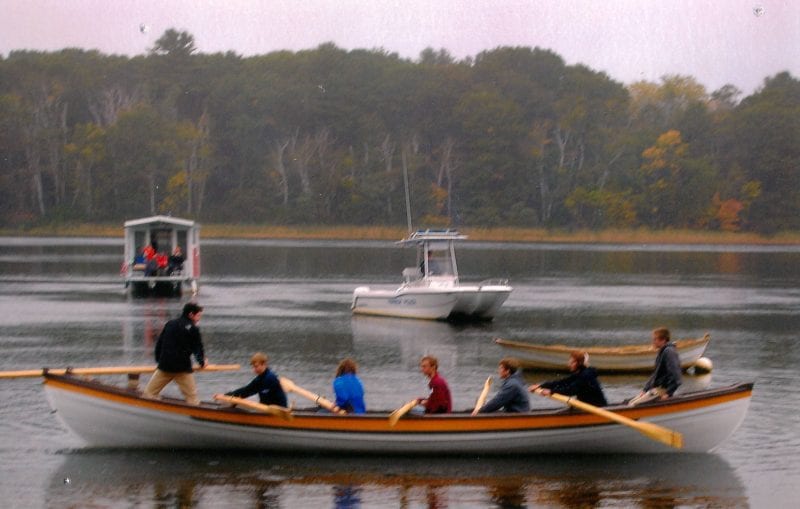
Launching the whale boat at Lowell’s Boat Shop built by apprentices, 2013. ‘Executive director Graham McKay’s vision became reality as the apprentices successfully launched and rowed this boat that was commissioned by Mystic Seaport’s Charles W. Morgan. As part of this great award, I became the education outreach coordinator for the museum, a position I have loved by bringing students to learn local history.’ Pictured: the seven apprentices who built the boat. Location: Merrimack River.’ Contributor: Patty Hoyt.
The former mill town’s industrial development in the nineteenth and early twentieth centuries is also documented in the collection. Contributors shared images of antique homes, historic structures and monuments, and carriage, automobile, and other manufacturing in the downtown area as well as haberdasheries and shipbuilding operations along the banks of the Powow and Merrimack rivers.
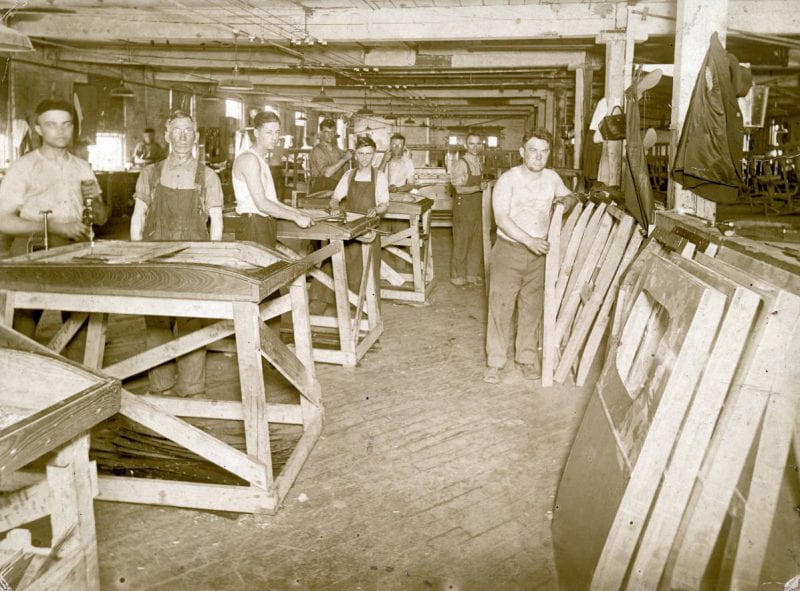
Biddle and Smart factory floor, early 20th century. ‘Carriage manufacturer, Biddle and Smart, factory where my grandfather worked. It was located on Chestnut Street. Pictured: (second from right, in overalls) my grandfather Edgar H. Gill and other unidentified workers.’ Contributor: Paula Parker.
Additional materials relate to Amesbury’s legacy of social reform and activism and its rich cultural heritage. Contributors shared memories of a number of poets, artists, and writers who once inhabited the town, as well as stories of those residing and working there today.
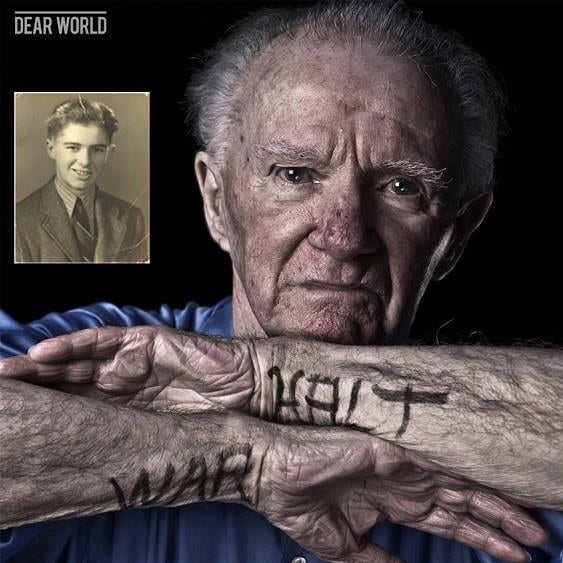
Halt war, 2013. ‘The “Dear World Project” visited the area in 2013. I asked my dad, Charles Dolan, if he would like to be photographed to share a message with the world. He was usually a very private person but he quickly agreed, stating he knew what he wanted to say. This photo captures the intense emotions my dad held inside–from his experience as a young soldier in the infantry during the Battle of the Bulge in WWII. There is urgency, fear, anger and sadness in his face. We had never seen these emotions but he was ready to share his message with the world. In his words, “I look like I just came off the battlefield.” I some ways, he had. He never thought of himself as a hero–he was just lucky. Despite being a Bronze Star recipient, he has never felt comfortable or deserving of applause. At a ceremony in Newburyport, my dad received a standing ovation. He welcomed the applause and attention in a way uncharacteristic of him. This time, however, he was being applauded for his message–his beliefs. We all saw a difference in my dad afterward. He had finally come home from the war. RIP Charles H. Dolan 9/19/1923-8/14/2014. Pictured: Charles H. “Bud” Dolan, Sr. Location: Tannery.’ Contributor: Charlene Dolan.
Through their contributions to the archive, local community members expressed great pride in their community service and public institutions. Civic engagement, volunteerism, and involvement in local organizations feature prominently in the collection’s images and video testimonials.

George Edwin McNeill sign dedication, 2016. ‘This sign is at the site of George E. McNeill’s birthplace. He was a work advocate and often called the “father of the eight-hour workday.” The Amesbury Improvement Association along with the McNeill family funded the renovation of a memorial plaque and created an historical sign. I am the president of the Amesbury Improvement Association. Pictured, from left to right: Roger McNeill, Carol McNeill, and unidentified members of the McNeill family. Location: George McNeill monument.’ Contributor: Anne Ferguson.
Browse the Amesbury Mass. Memories Road Show collection.
The Mass. Memories Road Show is a statewide digital history project that documents people, places and events in Massachusetts history through family photographs and stories. In partnership with teams of local volunteers, we organize public events to scan family and community photographs and videotape “the stories behind the photos.” The images and videos are indexed and incorporated into an online educational database. Since its launch, the project has gathered more than 10,000 photographs and stories from across the state. It is supported in part by the Patricia C. Flaherty ’81 Endowed Fund at UMass Boston.
University Archives & Special Collections in the Joseph P. Healey Library at UMass Boston was established in 1981 as a repository to collect archival material in subject areas of interest to the university, as well as the records of the university itself. The mission and history of UMass Boston guide the collection policies of University Archives & Special Collections, with the university’s urban mission and strong support of community service reflected in the records of and related to urban planning, social welfare, social action, alternative movements, community organizations, war and social consequence, and local history related to neighboring communities. To learn more, visit blogs.umb.edu/archives.
